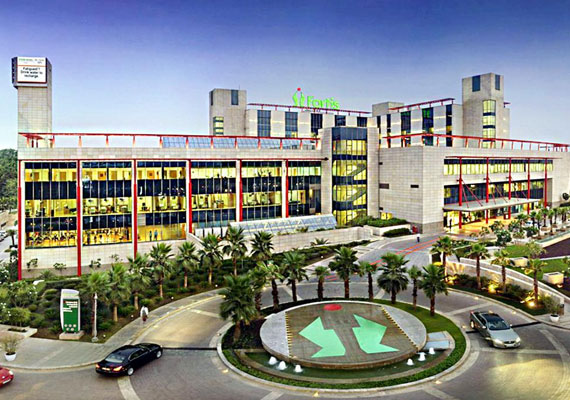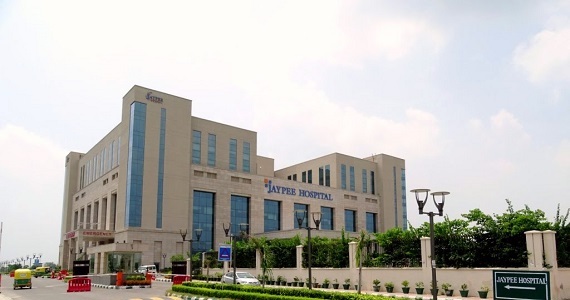Vitreoretinal Surgery Treatment in India
treatment
starting from
Introduction
Imagine a world without clear vision—where colors fade, contours blur, and faces become indistinguishable. For millions of people worldwide, this is a reality due to vitreoretinal disorders. However, in the realm of medical advancements, hope shines brightly in the form of Vitreoretinal Surgery. In this blog, we delve into the captivating world of this surgical marvel, exploring its cost, symptoms, causes, diagnosis, and treatment in India.
Understanding Vitreoretinal Surgery
Vitreoretinal Surgery, often referred to as VR surgery, is a delicate procedure aimed at treating various eye disorders that affect the retina and vitreous humor—the gel-like substance that fills the eyeball. The retina plays a crucial role in capturing light and transmitting visual signals to the brain, making it vital for sharp vision. VR surgery involves intricate maneuvers and cutting-edge techniques to repair and restore the retinal and vitreous structures, thereby rejuvenating a patient's eyesight.
Symptoms and Causes
Several eye conditions may necessitate vitreoretinal surgery. Some common symptoms that might indicate the need for VR surgery include:
- Retinal Detachment: A medical emergency where the retina separates from the underlying tissue, leading to sudden flashes of light, floaters, and a curtain-like shadow over the field of vision.
- Macular Hole: A small break in the macula (the central part of the retina responsible for sharp vision), leading to blurry or distorted central vision.
- Epiretinal Membrane: A thin, translucent layer that forms over the macula, causing vision distortion and mild visual impairment.
- Diabetic Retinopathy: A complication of diabetes that damages the blood vessels in the retina, potentially leading to vision loss.
- Retinal Tears: Small breaks or holes in the retina, usually caused by trauma or age-related changes, which can progress to retinal detachment if left untreated.
Diagnosis
Accurate diagnosis plays a crucial role in determining the need for vitreoretinal surgery. Ophthalmologists employ various diagnostic methods to assess the condition of the retina and vitreous humor:
- Dilated Eye Examination: This standard procedure allows the ophthalmologist to examine the back of the eye, including the retina and vitreous, using special instruments.
- Ultrasound Imaging: When a cloudy cornea or vitreous hemorrhage obstructs the view, ultrasound helps create images of the retina's condition.
- Fluorescein Angiography: A dye is injected into a vein in the arm, highlighting blood vessels in the retina to detect abnormalities.
- Optical Coherence Tomography (OCT): A non-invasive imaging test that produces high-resolution cross-sectional images of the retina, aiding in the detection of retinal disorders.
Vitreoretinal Surgery: The Procedure
VR surgery is typically performed under local or general anesthesia, depending on the complexity of the case. Three common types of vitreoretinal surgeries are:
- Vitrectomy: In this procedure, the surgeon makes tiny incisions in the eye and removes the vitreous gel, replacing it with a clear solution. This allows better access to the retina for repairs.
- Retinal Detachment Repair: During this surgery, the detached retina is carefully reattached to the back wall of the eye using laser photocoagulation, cryopexy, or scleral buckling techniques.
- Macular Hole Repair: The surgeon closes the macular hole using delicate instruments, improving central vision.
Cost of Vitreoretinal Surgery in India
India has emerged as a global destination for medical tourism, offering world-class healthcare at a fraction of the cost in Western countries. The cost of vitreoretinal surgery in India varies depending on the complexity of the case, the surgeon's expertise, the hospital's reputation, and the city's location.
On average, the cost of vitreoretinal surgery in India ranges from $1,500 to $4,000, making it significantly more affordable than in many developed nations. Additionally, patients can expect uncompromised quality of care and access to cutting-edge technology, ensuring a successful and seamless surgical experience.
Treatment and Recovery
The success of vitreoretinal surgery largely depends on the early detection of the eye disorder and the patient's overall health. Following the surgery, patients are advised to take the following precautions:
- Rest and Recovery: Adequate rest is essential for the eye to heal after surgery. Avoid strenuous activities and follow the surgeon's instructions diligently.
- Medication Compliance: Strictly adhere to the prescribed medications, including eye drops and antibiotics, to prevent infection and aid in healing.
- Follow-up Visits: Regular follow-up visits with the ophthalmologist are crucial to monitor the healing progress and ensure optimal outcomes.
- Eye Protection: Wear protective eyewear as advised by the surgeon, especially while engaging in activities that may pose a risk to the eyes.
Conclusion
Vitreoretinal Surgery is a remarkable feat of modern medicine, granting the gift of sight to those grappling with retinal and vitreous disorders. With its growing popularity and accessibility, patients in India and around the world can now envision a future filled with clear and vibrant vision. From affordable treatment options to cutting-edge surgical techniques, India stands at the forefront of vitreoretinal surgery, illuminating the path to a brighter tomorrow for millions.
How It Works
Need help in organizing medical travel to India?














